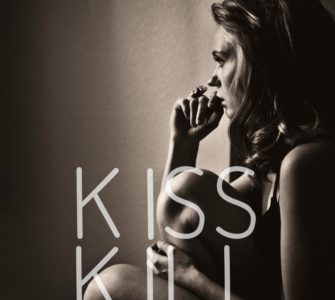You might write mainstream fiction, or historical fiction. As anyone would, you read your genre inside and out. You know the big players, the up-and-comers, the should-be-big-players. You know who’s overrated and who’s getting lazy. Keep on it, Hemingway in training.
But, the reading doesn’t stop there. Priceless lessons are to be learned reading outside your genre. I use the thriller genre for my writing courses because it’s one of the tightest fiction forms around. You’ve got to get right into the action; your reader is looking for clues in every scene, so every bit’s got to count. Why is the car old? They will wonder. Why does she say adios instead of goodbye? What’s that girl up to? They will ask. Characterization, these quirks and desires, fears and history—without information dump—drive the plot. And the pacing…well, the pacing is the fastest around. They call it the ticking time bomb. I couldn’t have said it better myself.
What does this mean for you if you don’t write thrillers? Well, everything. Get these elements right and you’re ahead of the game no matter what you write. Because the main challenge of writing a book people want to read is writing a book people want to read. How do you do that? Great characters? Page-turning suspense, the right balance of showing and not telling. Sound familiar? Can anyone say ticking time bomb? What’s more compelling than all those elements coalescing until our hearts are racing, tearing through to see how it all plays out?
Let’s try it with another genre: romance. What has romance got going for it? That same snappy pacing, which will help you pick it up, even if only unconsciously. Suddenly your long sentences will get a little more economical, your telling will pop out into showing. And fantastic alpha male characters—these writers know what makes a man attractive but not so perfect that he isn’t sympathetic, and how to convey that to readers so the readers work it out for themselves; they know how to create sexual tension, how to make female leads that readers who are extra-hard on their heroines will stick with.
One more: literary fiction. Here you will learn the power of choosing the right words, mixing up the format, trying out something new. You’ll learn never to let an opportunity go to waste—to make every single letter count. You’ll learn how to up the ante in the richness of scenes, avoid cliché, intertwine larger social issues, historical and literary references into the characters’ journeys.
The list goes on and on. The best part, possibly, is the inspiration you’ll generate reading new types of books instead of the same old kind of thing. So what are you doing on my blog? Go to the bookshop. And pick up something new. What books inspire you most? Learned something from genre reading? Please share!


It’s funny that you mention using thrillers in your classes; I just finished a YA thriller after writing middle grade books. It’s mostly an experimental novel (not sure if I plan on querying it), and what you said about it being tight writing is right on. It’s a big challenge for me, but excellent practice. I know I can apply the lessons learned to future projects, no matter the genre. Great post!